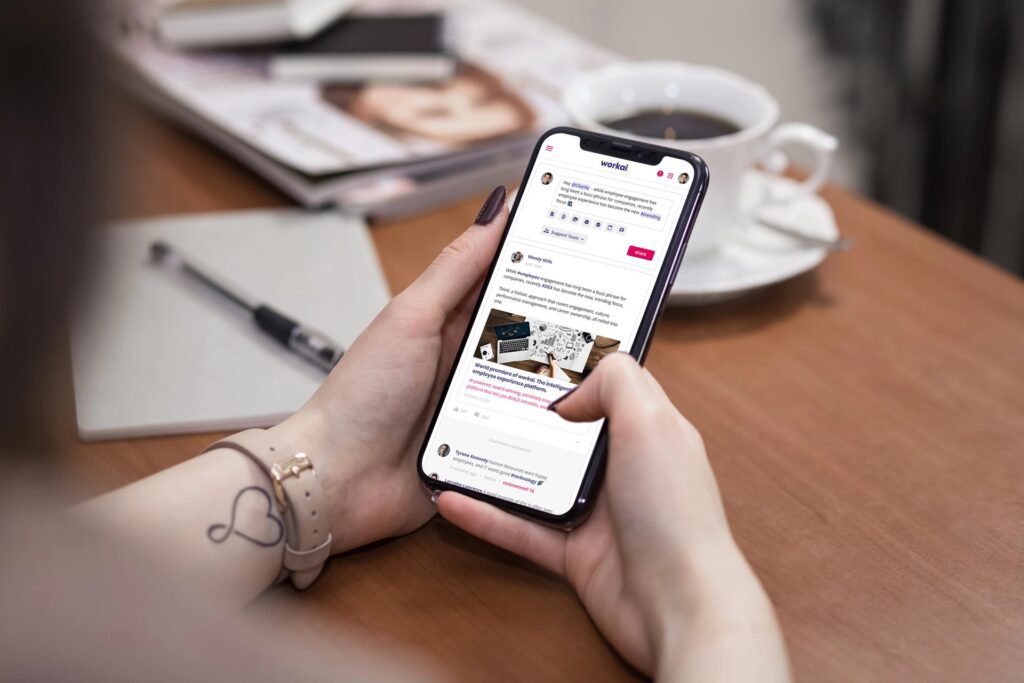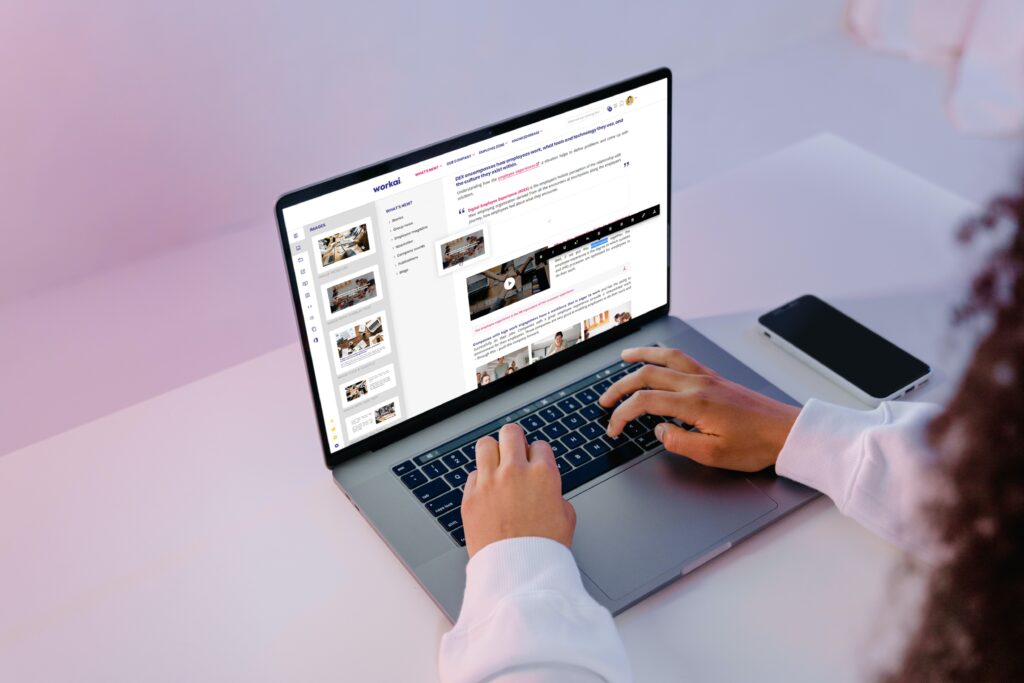
From evolution to revolution: How DEX powers corporate digital transformation strategies
What if the key to unlocking unprecedented success in the corporate realm lies not just in embracing digital transformation but in redefining the very fabric of employee experience? Picture this: as organizations hastily digitize processes in the wake of the pandemic, a paradigm shift occurs. What was once a mere convenience for employees transforms into the primary nexus between companies and their workforce. The question arises: Can the Digital Employee Experience (DEX) be the concealed catalyst for cultivating a workplace that harmonizes corporate digital transformation with human-centric values? Let’s delve deeper into these insights within the article, and explore how prioritizing Digital Employee Experience can not only impact but profoundly reshape the corporate landscape.

Adapting to digital communication shifts
Navigating the challenges of implementing Digital Employee Experience (DEX) within the realm of corporate digital transformation involves acknowledging the escalating prominence of digital communication.
The shift towards electronic tools, including instant messaging, virtual meetings, collaborative software, and social media, has disrupted traditional communication norms, expanded employee engagement boundaries, and necessitated recalibrated communication strategies. To adapt to these changes, organizations are now building communication strategies around the DEX approach, ensuring a positive digital employee experience aligned with the evolving dynamics of the modern workplace.
Digital Employee Experience (DEX) is the sum total of digital interactions within the work environment.
James Robertson, Founder & Managing Director, Step Two
An engaging dialogue in corporate communication
In the realm of corporate digital transformation, there’s a notable shift away from the traditional “top-down” communication model, as the market undergoes a transformation toward more engaging and interactive dialogue. The prevalent strategy, often reliant on unilateral messages sent via email from company management, is being challenged by the evolving social reality shaped by dynamic technological advancements and social media.
In this new landscape, fueled by the spirit of corporate digital transformation, actively seek a more inclusive experience—they yearn for their voices to be heard and the ability to impact organizational changes. Urging companies to align with the principles of corporate digital transformation, a “bottom-up” approach is advocated, engaging employees in communication processes.
This approach, deeply embedded in the ethos of corporate digital transformation, prioritizes understanding the needs of recipients and involving them in shaping communication, leading to information that is not only credible but also carries greater impact.

This strategic shift not only enhances Employee Experience (EX) but also plays a pivotal role in cultivating employee loyalty. By fostering a sense of devotion to the company, this approach, in harmony with the essence of corporate digital transformation, contributes to greater job satisfaction and increased retention rates among employees.
Corporate digital transformation: elevating work experience
In the landscape of corporate digital transformation, Digital Employee Experience (DEX) is not merely an enhancement; it stands as a vital competitive advantage and value proposition for organizations, catering comprehensively to both current and future employees.
The significance of DEX is further emphasized in workplaces characterized by diverse generational dynamics, where the impact of digital content varies distinctly across Generation Y (millennials), Generation Z, and Generation X.
For younger employees, embodying the principles of corporate digital transformation, such as millennials and Gen Z, prioritizing work comfort emerges as a key focus. Simultaneously, leaders from Generation X, emphasize work effectiveness. DEX plays a pivotal role in streamlining the use of work tools, ensuring simplicity and intuitiveness, thereby eliminating the need for time-consuming searches for the right information.

In the spirit of corporate digital transformation, personalized communication within the realm of DEX treats employees as internal clients, mirroring a broader trend. This transformative shift signifies a departure from the traditional view of employees merely as part of the company, transcending to recognize them as consumers or even internal clients. Such alignment seamlessly integrates with the evolving dynamics of modern workplaces, showcasing the transformative impact of corporate digital transformation principles within the realm of Digital Employee Experience.
Corporate digital transformation: elevating workplace productivity
Implementing corporate digital transformation through Digital Employee Experience (DEX) presents diverse challenges, spanning technological integration, cultural shifts, data security, and employee engagement. Organizations must adeptly navigate these hurdles to unlock the full potential of corporate digital transformation. Key considerations encompass resilience, productivity, a dedicated focus on customer experience (CX), and the delicate balance between the complexity and simplicity of tools.

Despite considerable investments in enhancing customer-facing products, the critical connection between CX and corporate digital transformation through Digital Employee Experience is often overlooked. To bolster employee support and overall customer experience, companies need to strategically shift their focus from the mere delivery of tools to ensuring they align sensibly with the staff’s needs.
This subtle yet crucial integration of corporate digital transformation principles into the realm of Digital Employee Experience reinforces the transformative journey organizations undertake to thrive in the digital era.
To enhance tool usage, companies should conduct precise research among employees, comprehensively understanding their needs. This insightful information guides the identification of areas requiring improvement, ensuring a strategic focus on both “what” is needed and the crucial “how”—addressing how the tools function, connect with other systems, and deliver a seamless, productive experience for employees.
The Digital Employee Experience (DEX) emerges as the untapped secret with the potential to revolutionize the corporate landscape, seamlessly blending technological advancement with human-centric values. As organizations navigate the challenges and opportunities presented by the digital era, prioritizing DEX becomes a strategic imperative.
By streamlining work tools and transitioning from traditional communication models to personalized approaches, organizations reshape their workplaces into digitally enriched, engaged, and thriving environments. This unlocks the untapped potential of DEX, not only impacting the employee experience but also profoundly reshaping the very fabric of the corporate realm. In this changed scenario, the combination of advanced technology and human-centered principles thrives, leading to remarkable success and a workplace that aligns with the evolving dynamics of the contemporary world.
